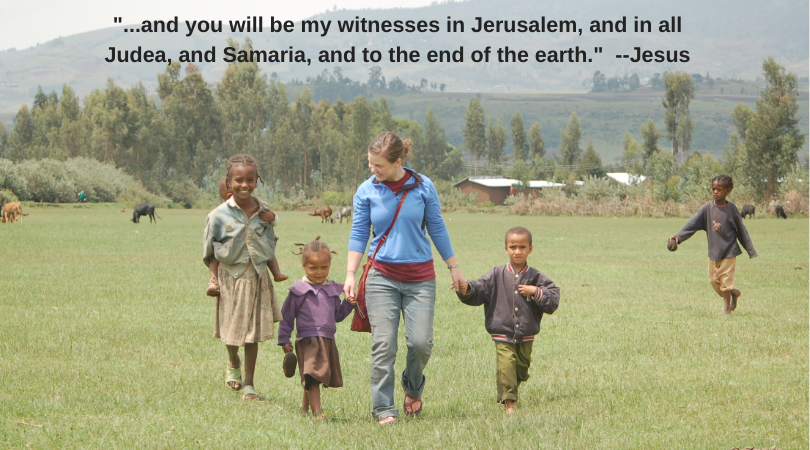A Ridiculous Question
A Ridiculous Question
It's right there in Matthew 15:33. Jesus wants to feed a crowd of people instead of sending them away. Not a small crowd either. They are about to sit them down in groups and count them, and they will count 4,000 men plus women and children. And your mom thought she had a lot of mouths to feed.
So how do the disciples respond?
"Where are we to get enough bread in such a desolate place to feed so great a crowd?"
These disciples didn't always get it. At times it seemed like they were out to prove that there actually is such a thing as a dumb question. At one point, even the mom of James and John got involved. I bet her name was Karen. Karen Zebedee, probably.
This question in Matthew 15, though. It's at the top of the bad question list.
That's because there's a Matthew 14. Yes, just one chapter earlier Jesus and these same disciples found themselves in a similar situation. Big hungry crowd. Not enough food.
On that day Jesus fed 5,000+ with five loaves of bread and 2 fish from a kid's sack lunch. These disciples passed out the food. These disciples picked up all the leftovers after everyone ate. 12 baskets full of leftovers!
One chapter later, these same disciples have no idea where they could ever get enough food to feed this crowd.
What. In. The. World.
We tend to give the disciples a hard time for being slow to learn while forgetting how many times we tend to act just like them. That's for another blog post.
However, I find it hard to believe they are simply forgetting what Jesus did. I don't think they are doubting his power to work wonders. That would truly be ridiculous.
I think their question here is exposing a deeper issue. And we can understand this if we think about the three most important aspects of real estate: location, location, and location.
Jesus fed 5,000 (chapter 14) in Galilee. The crowd that day was predominantly Jewish. On this day (chapter 15), Jesus had led the disciples into the region of Tyre and Sidon. The crowd in this story is predominantly Gentiles.
Could it be that the disciples remembered Jesus feeding the Jewish crowd, but simply did not expect him to feed these Gentiles? Did they perhaps think Jesus was the bread of life for the people of Israel, but not for outsiders? Might they have believed that Jesus would provide for His people, but not for foreigners?
There are plenty of reasons to consider this possibility. After all, it seems like Peter needed a trance-induced vision of bacon, a road trip to Caesarea, and an impromptu speaking engagement in the home of a Roman Centurion before he fully figured out that this gospel was for all nations. And that didn't happen until Acts chapter 10.
“I now realize how true it is that God does not show favoritism, but accepts from every nation the one who fears him and does what is right." -Peter (Acts 10:34-35)
If this idea is correct, then they really were missing something.
They were missing the heart of God. They were missing the hints, signs, predictions, and prophecies all throughout the Old Testament leading to this point.
The gospel is for all nations. Jesus is the only hope for all peoples.
This truth is foundational to our vision, our mission, our purpose, and our teaching at iGo. And it will be until the end.
"And this gospel of the kingdom will be proclaimed throughout the whole world as a testimony to all nations, and then the end will come." --Jesus (Matthew 24:14)
We won't be going to the nations this summer due to COVID complications with travel. But the nations have come to us, and we will be engaging them in Houston, Kansas City, and New York City.
Please pray for us as the summer is about to begin. Pray for our students, our churches, and our leaders as we point the nations to the hope that is only found in Jesus.
And pray for our international mission partners as well. They live and the serve on the front lines all over the world in order to share the ultimate good news with every nation, tribe, and tongue.
Jesus is more than enough for everyone. Let's join him in his work.





